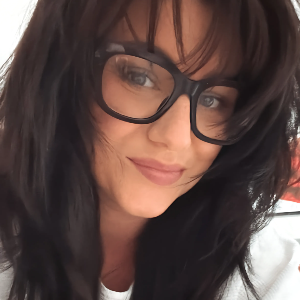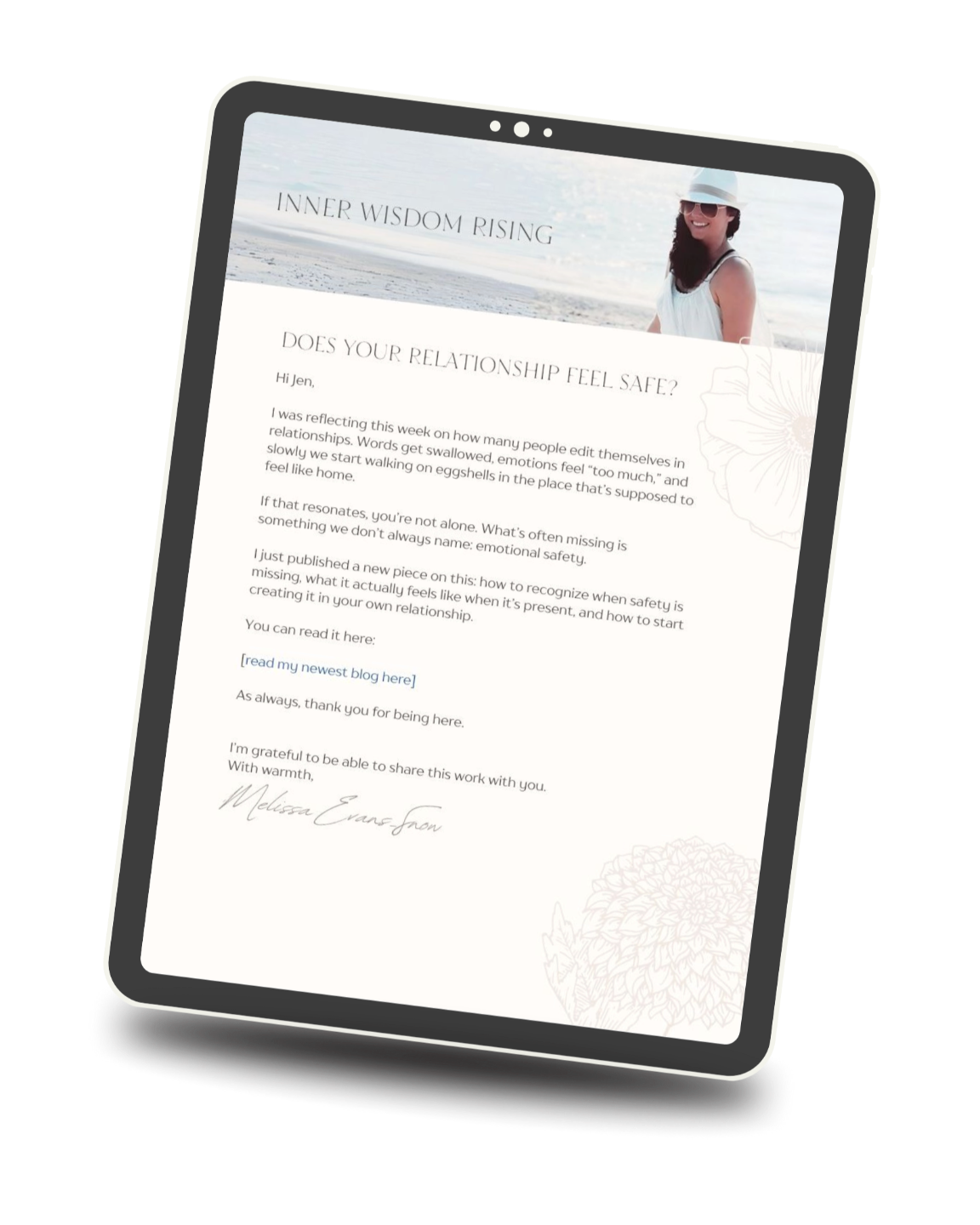Why ChatGPT Can't Be Your "Therapist"
Sep 14, 2025
It's 2:30am and you can't sleep. Your mind is replaying that conversation with your partner over and over, the one where everything went sideways. You reach for your phone and open ChatGPT.
"I had a fight with my partner tonight and I can't stop thinking about it..."
Within seconds, you're in conversation with something that seems to understand. It reflects your feelings back to you, validates your perspective, asks thoughtful questions. For the next hour, you pour out your heart to this digital listener that never interrupts, never judges, never gets tired of your spiral.
You close your laptop feeling... better? Heard? It's hard to say exactly, but the sharp edge of your distress has softened.
I've been watching this scene play out more and more. Friends describing their late-night ChatGPT therapy sessions. Clients processing childhood wounds with AI before coming to see me. Each time, I notice something: they feel temporarily soothed, but they're not actually changing.
The Seductive Promise
ChatGPT offers something irresistible when you're hurting: a witness that never leaves, never gets overwhelmed by your pain, never asks you to consider that you might be wrong. It feels like having a therapist in your pocket, one who's available at 3am, who never charges by the hour, who never challenges you in ways that make you squirm.
When you're activated and your chest is tight and your thoughts won't stop racing, this feels like exactly what you need. Pure validation. Complete availability. Total safety from judgment or rejection.
But here's what I've learned from years of doing this work: the things that feel safest in the moment are often the things that keep us most stuck.
What Gets Lost in Translation
When you tell ChatGPT about your fight, you're telling your story. Your version. The one where you're the reasonable one, where your partner's reaction was too much, where your hurt feelings are the center of the universe.
ChatGPT takes this story and hands it back to you, polished and validated. It might ask gentle questions, but it will never say: "I wonder if you're missing something here." It will never suggest that your partner's perspective might have equal weight. It will never point out the pattern you've been repeating for years.
Think about the last time a friend really helped you work through something difficult. They probably said things that made you pause, that made you see the situation differently, that challenged assumptions you didn't even know you were making. That friction, uncomfortable as it was, is where your growth lived.
ChatGPT will never give you that gift of perspective. It's designed to keep you comfortable, which means it's designed to keep you exactly where you are.
The Body Knows What the Mind Misses
But here's something ChatGPT can never access: the wisdom of your body.
When you're telling your story to AI, you might notice your breathing getting shallow as you relive the conflict. Your jaw might clench when you describe what your partner said. Your chest might cave in when you touch on the deeper hurt underneath the anger.
These aren't just physical sensations, they're information. They're your system's way of showing you where the real work needs to happen. A skilled therapist or coach knows how to help you notice these signals, slow down with them, and let them guide you toward what actually needs attention.
ChatGPT sees only your words. It misses the way your whole being responds to different parts of your story. It can't help you track when you're moving into overwhelm or guide you back to your breath when the emotions become too much.
Your healing lives in your body, not just in your thoughts. And AI simply cannot go there with you.
The Loneliness of Being Right
ChatGPT never disagrees with you. It never misunderstands what you need. It never has an off day or brings its own stuff into the conversation. In some ways, this feels like the perfect relationship, one where you're never disappointed, never hurt, never asked to stretch beyond your comfort zone.
But here's what happens when you consistently choose this kind of "support": you start to lose your capacity for real relationship.
Real relationships are messy. People misattune. They say the wrong thing. They need to repair when they've hurt you. They ask you to see their perspective even when you don't want to.
This messiness is where the real learning happens. It's where you discover that love can survive conflict, that you can speak up when you feel unseen, that relationships can hold both your hurt and your partner's different truth.
When you practice intimacy only with AI, you miss the chance to develop resilience for the beautiful, imperfect reality of human connection.
The Rhythm That Can't Be Programmed
ChatGPT responds to everything you share immediately. Send a message, get a response. Share something vulnerable, receive instant validation. It's efficient, predictable, always available.
But healing has its own timing that can't be rushed.
Sometimes you need to sit in silence with a feeling before you're ready to explore it. Sometimes you need someone to just be present with your pain without trying to fix it. Sometimes you need to be gently challenged, and sometimes you need to be held exactly as you are.
A person who knows how to hold space for healing understands this rhythm. They can sense when to speak and when to stay quiet, when to push you gently and when to simply witness. They know that sometimes the most healing thing is not to receive a response at all, but to feel truly seen in your struggle.
This intuitive dance between two people, this attunement to the natural pace of emotional processing, is something AI simply cannot replicate.
The Mirror That Shows Only Half the Picture
When you're hurting, ChatGPT can acknowledge your pain and offer thoughtful reflections about what you're experiencing. It can even share general wisdom about similar situations.
But it can't say: "I've been exactly where you are." It can't tell you how it felt to walk through something similar and come out the other side. It can't offer the profound comfort that comes from knowing someone has navigated the same dark water and found their way to shore.
Human healing happens in the space between two people who share the common ground of being beautifully, messily, imperfectly human. When someone can genuinely relate to your experience, not just understand it intellectually, but have lived something similar in their own body, it changes everything.
You realize you're not alone. You're not broken. You're not the first person to walk through this kind of struggle. And if they made it through, maybe you can too.
The Comfort That Keeps You Stuck
ChatGPT offers something that feels like healing: validation, understanding, a witness to your experience. But it's missing everything that makes healing actually transformative.
Real healing requires being seen by someone who can gently challenge your perspective. It needs the back-and-forth of genuine relationship, where both people are invested in the outcome. It requires learning to navigate the inevitable ruptures and repairs that come with human connection. It needs someone who can track not just your words but the wisdom of your whole being. It requires the natural rhythm of processing that can't be programmed. And it's deepened by the shared humanity of knowing someone else has walked this path.
These elements don't just change how you think about your problems, they transform how you feel, how you relate, how you trust, and how you love.
What Your Heart Actually Needs
I'm not saying technology is evil or that reaching out to humans is always easy. Sometimes it feels impossible. Sometimes you don't have access to safe relationships. Sometimes you're too overwhelmed to make that call.
But when your heart is heavy, when relationships feel overwhelming, when old wounds are surfacing, this is exactly when you need what only human relationship can provide.
The messiness. The imperfection. The real-time attunement. The possibility of being truly seen and held, challenged and supported, broken and repaired.
That's where transformation happens. Not in the comfort of digital validation, but in the brave choice to bring your healing into human relationship, where it can be met, witnessed, and transformed.
The path toward healing isn't about finding the most convenient option. It's about developing the capacity to be vulnerable with another person. It's about learning that you can be seen in your full humanity and still be loved. It's about discovering that relationships can hold your complexity, your contradictions, and your growth.
This is the kind of healing that changes not only how you feel, but how you show up in the world.
Ready for Something Real
If you're recognizing yourself in these late-night conversations with AI, if you're tired of feeling temporarily better but not actually changing, if you're ready to explore what healing in human relationship feels like, this is the work we do together.
As a Somatic Facilitator, Conscious Relationship Counsellor, and Attachment Specialist, I support people who are ready to move beyond the comfort of digital validation and into the transformative mess of real human connection. Together we explore what keeps you guarded, develop your capacity to stay present with difficult emotions, and build the foundation for authentic intimacy.
This isn't about communication techniques or quick fixes. This is about the kind of deep, embodied healing that happens when you allow yourself to be truly seen.
Book a consultation to explore working together.



